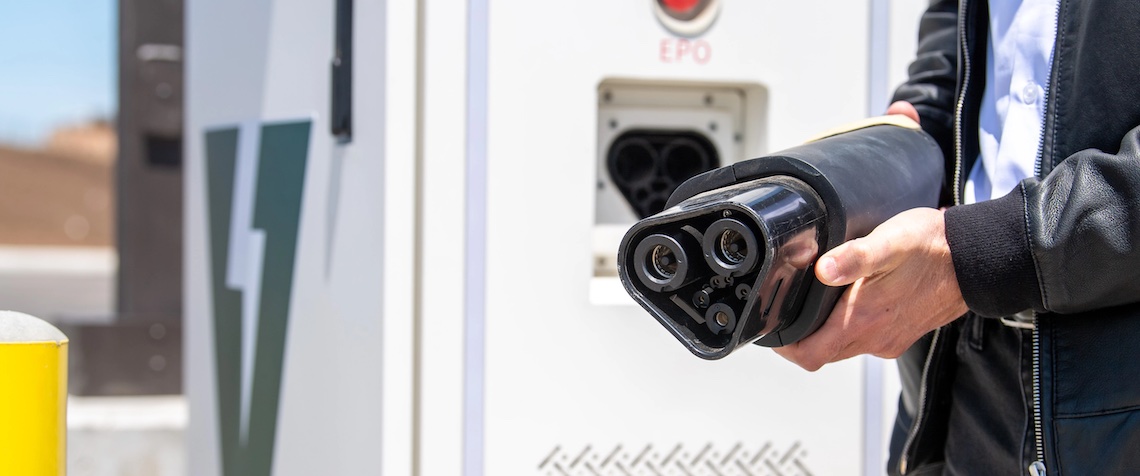
A megawatt charging dispenser located at WattEV's Bakersfield charging depot. WattEv photo
Written by John Lindt
This week the Kings County Board of Supervisors unanimously approved an application for a $58 million heavy-duty electric truck charging station that would be built in Kettleman City along Interstate 5. The project will be constructed with outside funding at no cost to the county.
Trucking companies, freight and logistics firms in the state are under pressure to meet California fleet mandates that call for converting the state’s 1.8 million commercial trucks to emissions-free vehicles over the next 20 years. A number of manufactures are now offering electric big rigs. But they need a place to charge rapidly.
Kettleman City is in the sweet spot halfway between San Francisco and Los Angeles. More than 14,000 diesel trucks per day pass the site on I-5. Diesel trucks are one of the largest contributors to air pollution in Kings County.
SkyCharger, LLC, has reached out to the county to request assistance in applying for funding under the U.S. Department of Transportation Federal Highway Administration’s Charging and Fueling Infrastructure Round 2 Grant Program, which requires a local government to submit the application. SkyCharger is proposing the development, construction and operation of a state-of-the-art electric vehicle (EV) charging station on Bernard Drive in Kettleman City. This 14-acre facility will serve medium and heavy-duty trucks as well as light-duty EVs, addressing the growing demand in the region and supporting California’s Zero-Emission Vehicle (ZEV) goals.
It is currently anticipated that an application for a site review plan will be filed with Kings County by January 2025, with approval expected in April 2025. It could open in 2026.The development is anticipated to take approximately nine months to complete.
The project will have no impact on the general fund. In total, the project will cost about $58.2 million, of which the county will request federal funding of $35.6 million. SkyCharger will be responsible for covering the remaining balance through other funding sources, including renewable energy and EV charging station tax credits, additional grants and rebates through Pacific Gas & Electric, programs such as the Carl Moyer Fund via the San Joaquin Valley Air Pollution Control District, and sponsor equity.
The station is strategically located to support California’s goal of transitioning to ZEVs by 2045 and will facilitate a charging corridor extending from Oregon to Mexico.
The project aims to reduce emissions, provide economic and workforce development benefits and address high demand for EV charging in the region. It will feature advanced energy resources, including a 1-megawatt (MW)/4- megawatt hour (MWh) battery storage system and a 3.86-megawatt solar canopy, supporting 56 dual-port direct current (DC) fast chargers.
Over 15 years, it is conservatively estimated to avoid 230,433 pound of carbon dioxide emissions and tens of thousands of pounds of other GHGs.
Bakersfield project open
The Kettleman charging station will not be the first in the Valley with WATT EV opening an electric truck charging station in May of this year near Bakersfield on 119 acres. The company says this state-of-the art station features 16 dual-cord 360-kilowatt chargers connected to the grid and 15 single-cord 240 kilowatt CCS chargers, plus three MCS 1,200-kilowatt rapid chargers, drawing power from the site’s solar array. Significantly, the MCS chargers will bring down truck charging “dwell time” from hours to less than 30 minutes, said WattEV CEO Salim Youssefzadeh.
TravelCenters of America is also building a similar facility near Ontario.








